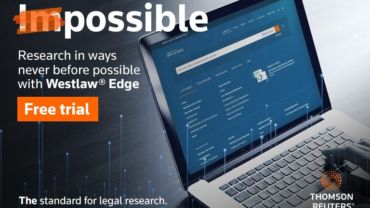In a new blog series, “In Practice", we look at how corporate law departments can apply the lessons learned in 2020 to their legal operations going forward
Donny Ching is the visionary leader of Shell’s Global Law Department, which totals 1,000 professionals in 45 countries. Under Ching, Shell’s Law Department has moved from a reactive, labor-intensive, and lawyer-centric model that simply offered legal advice to a proactive, data-driven, tech-enabled, and multidisciplinary-talent model offering an array of valuable business solutions.
The transformation has been fueled by Ching and his ability to enable his legal operations team to fully maximize the value it brings to the law department and, by extension, to the company as a whole. In our latest In Practice interview, Ching discusses the approach he has employed, providing examples that demonstrate the benefits of expanding the role of legal operations.
Rose Ors: What was your goal in launching a legal operations unit and how is it organized?
Donny Ching: We launched our legal operations function in 2018 to reduce costs, increase efficiencies, and consolidate services. Today, our team of project managers, pricing specialists, data analysts, technologists, and digital design specialists work at two of Shell’s offshore service centers in Malaysia and Poland. The service centers also house our Legal Advisory team, comprised of junior lawyers and paralegals, who currently focus on standardized, low-risk work. Our head of Legal Operations, Barry Tyndall, leads the team, reports to me, and is a member of my legal leadership team.
Rose Ors: I imagine that having a group with such diverse skills and mindsets helps drive innovation.
Donny Ching: We strive to create a culture where bold, creative thinking is encouraged and nurtured. One way to develop a culture of innovation is to have talented people with diverse experiences and skills collaborate on ways to rethink what work should get done and by what means. I challenge my team to be “outside the box” thinkers.
For more, check out How General Counsel can maximize the value of legal ops
In my experience that requires having a box that includes more than lawyers. I am constantly evaluating what new skills and disciplines we need to continually innovate and improve.
Rose Ors: How far outside the box have you gone?
Donny Ching: One of our more interesting experiments is what we call visual contracts. We are exploring how to add visual elements — sketches, graphs, pictures — in contracts where technical or other complex concepts are difficult to understand using only words. We have found that adding visual elements makes for shorter, clearer agreements.
The results of this experiment have led us to consider how we can make all of our contracts understandable for the parties that will execute them. Many contracts are written in legalese with long “what-if” clauses that most signatories to the agreements have difficulty understanding; they sign only because each side trusts their lawyers. We want to get back to the original purpose of having a contract: a meeting of the minds.
Rose Ors: Why is the Legal Advisory team within the legal operations function?
Donny Ching: Having the advisory team within legal operations allows us to start aggregating in our service centers work that does not require a lawyer to be in a specific onshore jurisdiction. Consolidating such work will help us “right staff” the matter and perform more efficiently. We started by having the lawyers in our service centers take on certain standardized low-risk work and are now building up their capability and knowledge to handle more complex work.
Rose Ors: What is an example of work that has been shifted to the service centers?
Donny Ching: We used to have hundreds of lawyers, some very senior, drafting thousands of non-disclosure agreements (NDAs) a year. Today, we are migrating to an easy-to-use tech tool that will allow most of our NDAs to be quickly generated by our business colleagues. If an NDA is more complicated or unique, the tech tool enables the client to send the NDA to the Legal Advisory team who either drafts the NDA or sends it to a lawyer with the necessary subject matter expertise.
Rose Ors: So consolidating NDAs also helped you to automate them.
Donny Ching: Exactly. Achieving the digital transformation we desire will require standardizing as much work as possible. Centralizing work makes standardization easier to accomplish. It also helps us make the process leaner and more efficient because you don’t really want to digitize your inefficiencies.

Rose Ors: What changes has legal operations made in how you use data?
Donny Ching: We have increased how efficiently we use data, and we have enhanced the metrics we use to measure performance.
We used to house data on all our patents — totaling in the thousands — in reams of spreadsheets that would take days to review. Extracting information was extremely time-consuming. Today, our patents can be accessed through a simple-to-use visual dashboard with powerful search features. But the dashboard does more than access data quickly — it allows us to interrogate the data. For example, the tool now allows us to rank different patents in terms of importance and value, all linked to the underlying agreements so that we can drill down into an individual license agreement to see what the license revenue is, when it expires, etc.
Among the metrics we use to measure law firm performance is the value we realize under what we call “appropriate fee arrangements.” We evaluate whether we achieved the anticipated cost savings and track the added value we received in the form of training, secondments, or free hotlines.
Rose Ors: Visual contracts, self-service NDAs, and patent data at the touch of your fingertips all point to an intentional evaluation of what work should be done and by what means. What’s next, Donny?
Donny Ching: Next is launching a single department platform — a 24/7 digital front door called LegalConnect — where all except bespoke and strategic work will be logged in, assigned, and managed. Having such a central clearinghouse would enable us to become more strategic and proactive. We could quantify the volume and type of work and know which businesses and countries are raising the most work. Knowing all that would help us more quickly identify potential exposures and develop ways to manage them.
Such extensive data also would help us manage the law department. We could better allocate resources among businesses and countries and better evaluate what experience levels we need among our lawyers.







